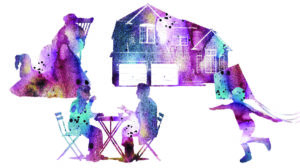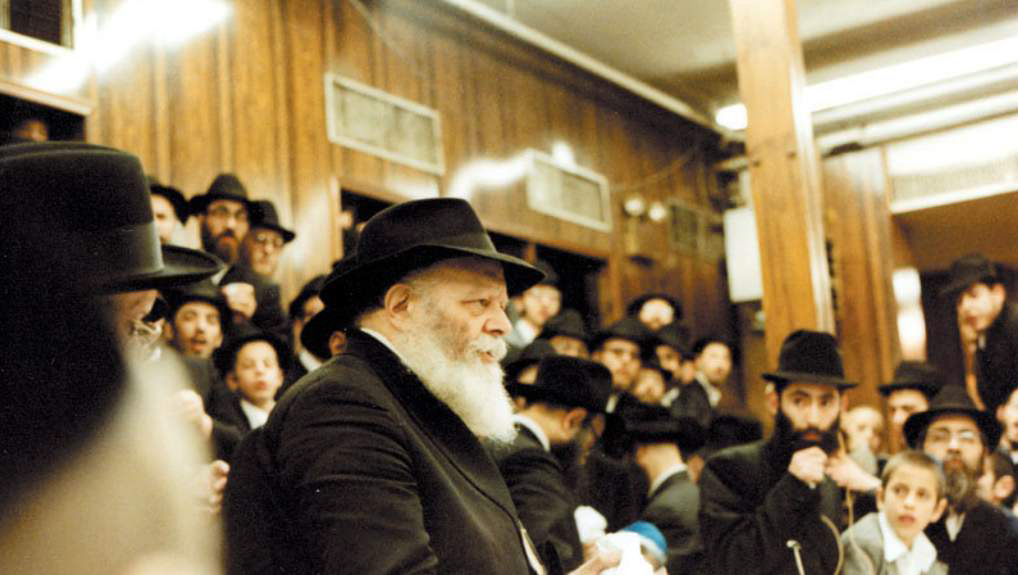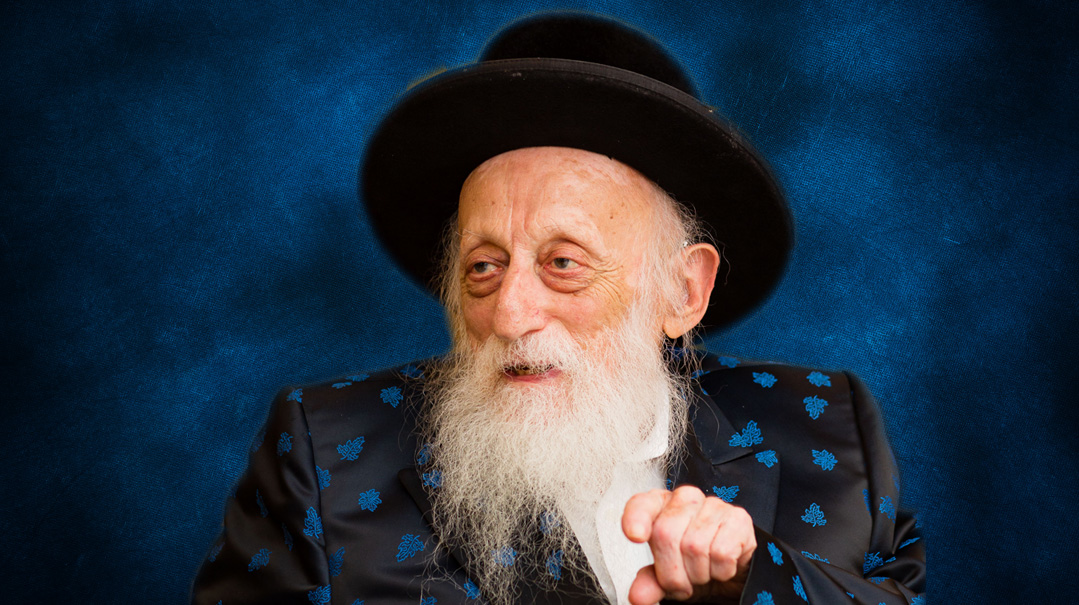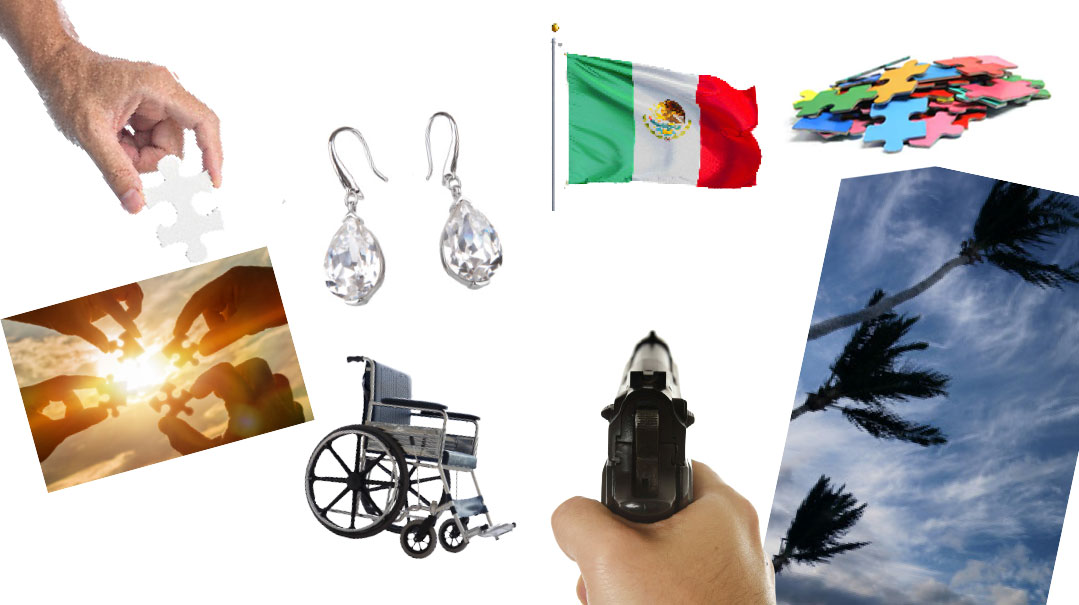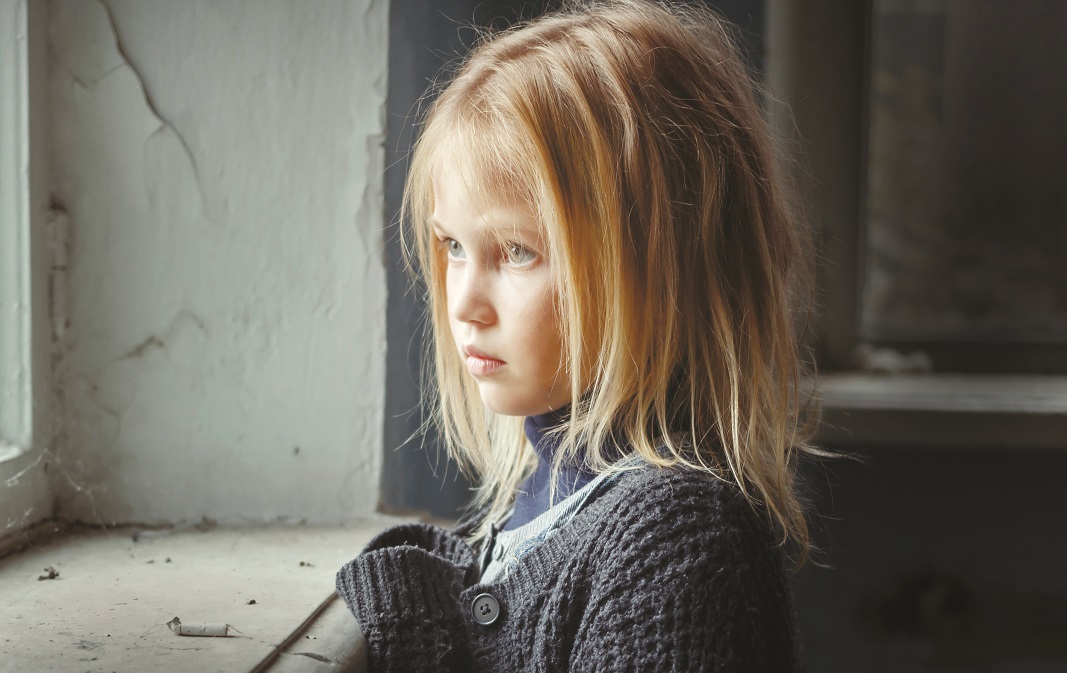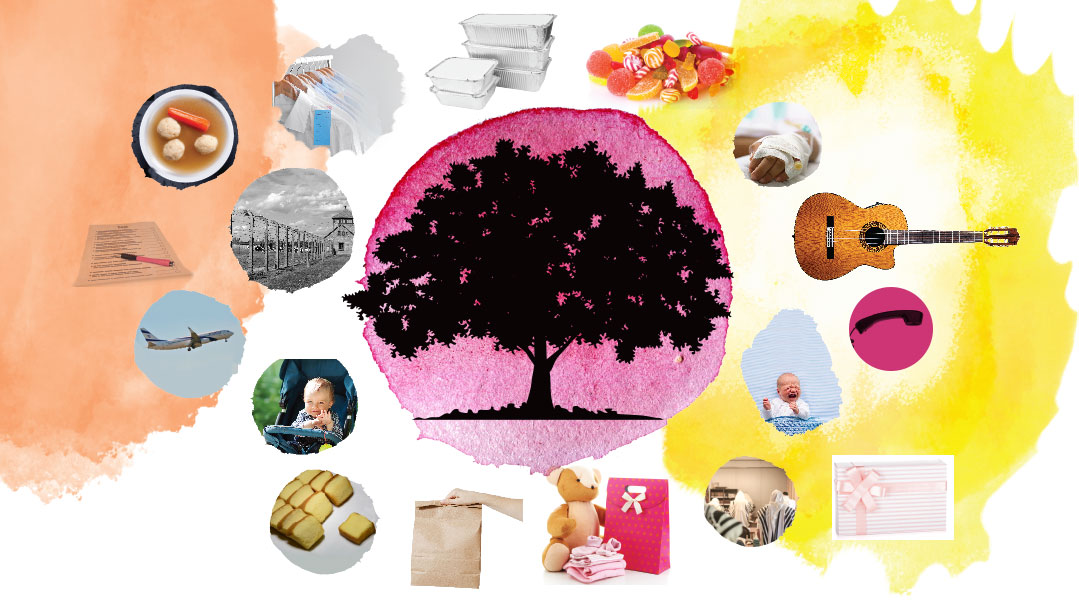Battles and Beliefs
| August 7, 2019Six first-person accounts of recent wars our nation endured. All tell of suffering, of tears, of pain, yet at the same time, all tell of hope and belief in our ultimate redemption
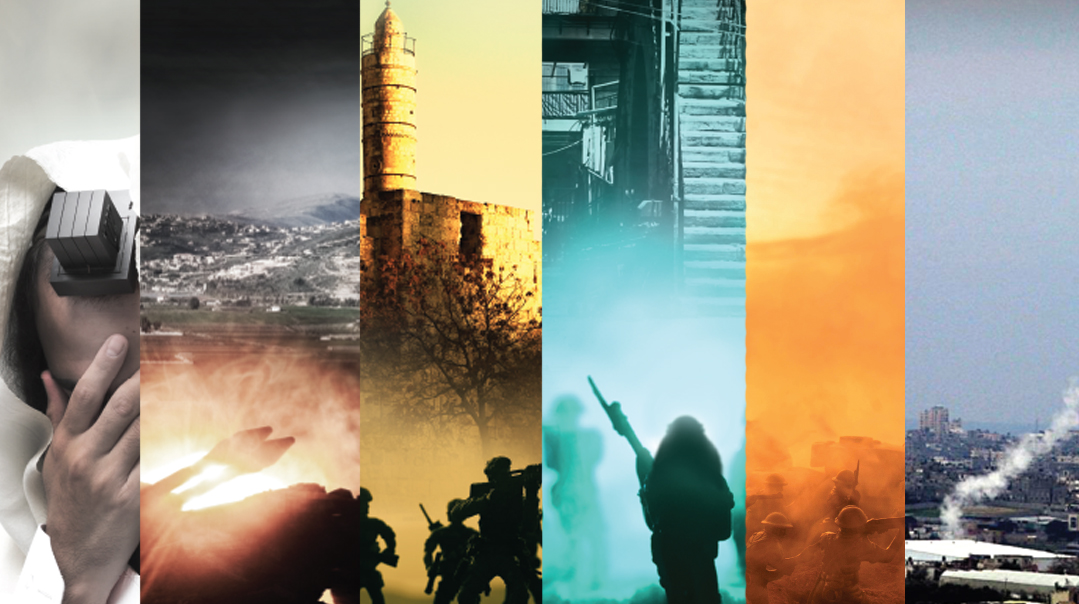
One of the Thirteen Principles of Faith codified by the Rambam declares that we believe Mashiach will come, no matter how long his arrival is delayed. A haunting tune created for the words of this Ani Maamin was composed by a Modzhitzer chassid, Reb Azriel David Fastag, on a cattle car rumbling its way to Treblinka. Some who survived that journey taught this tune to the world. The tune and its words embody our deep belief throughout the 2,000 years of our long, agonizing, and war-riddled exile that one day Mashiach will come and our pain will melt away. We’ve never stopped hoping, never stopped believing. Here are six first-person accounts of recent wars our nation endured. All tell of suffering, of tears, of pain, yet at the same time, all tell of hope and belief in our ultimate redemption.
Never Alone
Miriam Eshel
Age during the war (World War II): 13
Place of residence during the war: Carpathian Ruthenia, Czechoslovakia
Current residence: Ramat Gan
I
n 1943, the Nazis took control of Carpathian Ruthenia. Immediately, they set about confiscating all Jewish property and rounding up Jews into ghettos and, subsequently, death camps.
One day after Pesach, there was a knock at our door. Several SS officers barged into our home and instructed my mother to pack a bag weighing no more than one kilogram for each member of the household. “You stay at home with the baby,” they ordered her. “Your husband and eight other children are coming with us.”
After they left, my mother fainted from the shock. But she quickly came to and started bustling about. Within an hour the parcels were ready. She even remembered to pack toothbrushes and towels.
The Nazis came to get us, herded us onto trucks, rounded up the rest of the Jewish neighborhood, and pushed us all into the Great Synagogue. That night, we davened, sang chassidic songs through our tears, and slept on the floor.
Those who were more in the know told my father that the Nazis had left Mama at home so that she could watch the house and prevent looting until they’d return. Tatte sent me across the bridge to our house at night to reassure her that she’d be joining us soon.
I managed to sneak out of the synagogue. In the thick darkness of night, I crossed the river and knocked on the door of our home. “Mama,” I said. “It’s me.”
“Where’s everyone?” she asked. “Are you coming home?”
“‘No, Mama. Tatte sent me to tell you that they’ll let you join us in a day or two.”
“‘Baruch Hashem!” she said in relief. “But what about you? They didn’t do anything to you? They didn’t hit you?” My mother’s words were laced with fear and I reassured her. Two days later she arrived at the shul.
We lived in the shul, sleeping on the floor, for a whole month. After that they took us by train to the ghetto in Munkacs.
Each morning in the ghetto we’d receive one ladleful of milk and one slice of bread per person. One day my father took a big pot to collect the milk but the wicked Nazis took all of the men’s pots, turned them over, and banged them on the Jews’ heads. Father came back from that incident badly bruised, and I offered to go and collect the milk. This time I took bowls, not a pot, and I went back and forth several times to get all our milk.
After three months of suffering, we were taken to Auschwitz. I cannot describe the conditions in the cattle cars we were crammed into. I remember my 80-year-old grandfather sitting on the floor of the cattle car, weeping as he recited Bircas Hachodesh. All the passengers wept along with him.
“When will Hashem remember us?” I asked my mother.
“Don’t worry,” she reassured me, fighting back tears. “He’ll remember.”
My first day in Auschwitz was the last day I saw my family. My mother and younger siblings disappeared into the gas chambers and my father and older brother were taken someplace to work, never to return. Mengele, the Satan of Auschwitz, directed me to work. Our work detail dug trenches, and we were given food according to our output.
Toward the end of the war we were sent on the notorious Death March. We walked with bare feet and long dresses. Our feet froze and walking was difficult, but anyone who couldn’t keep up was severely beaten. Those who fell onto the snow were instantly shot by those evil monsters.
One night we reached a large storeroom. Three of us girls huddled together: the shochet’s daughter, the gabbai’s daughter, and me. The shochet’s daughter and I both had typhoid. We were burning with fever and our stomachs ached unbearably. We couldn’t continue walking.
In the morning we heard whistling, signaling that it was time to come out and begin walking. We didn’t move. Instead, we hugged each other and said the words of Shema Yisrael with utter terror. Suddenly we heard those accursed men fleeing. The Russian army had arrived!
The Russians entered the storage room. There was a Jewish soldier among them and he wept when he saw us. He gave us some food and soldiers’ uniforms to wear and we began our homeward trek all the way to Czechoslovakia.
I reached my parents’ house, but of course none of my family members were there. Ukrainian and Hungarian gentiles were in the house instead, and they chased me away. Where was my family? Where should I go? Whom did I belong to?
A gentile woman who’d worked at our home gave me a place to stay for the night, but I ran away before dawn, feeling completely lost. I went to the center of town, where I met a man who knew my family well, and he offered me a place to sleep.
A few days later the man told me that my younger brother was alive and well, sleeping on the sidewalks. I went to look for him across the town’s main bridge, and suddenly I spotted a small, familiar figure walking there, too. It was my little brother, Baruch.
Baruch and I came to Eretz Yisrael, hoping to begin our lives anew. But then the War of Independence broke out and Baruch was recruited. He fell in battle in Ramla. Another war. Another loss.
I was alone. Not a single member of the large family that I’d had in Europe was alive. But Hashem didn’t abandon me. I met my husband, a good, erliche person, and we had children together, grandchildren, and great-grandchildren. They give me the strength to go on living, despite the horrible memories that never leave me.
The Price of Independence
Zehava Strassberg
Age during the war (War of Independence): 18
Place of residence during the war: Meah Shearim, Jerusalem
Current residence: Sanhedria Murchevet, Jerusalem
U
ruguay? Yes! Afghanistan? No! Australia? Yes! France? Yes! Chile? Abstention! With a majority of thirty-three votes (versus thirteen noes, ten abstentions, and one absent vote) the UN’s Partition Plan was accepted. A date was set for the end of the British Mandate in Israel and the establishment of the State of Israel. On November 29, 1947, the War of Independence, a battle between Jews and Arabs over the newly declared State of Israel broke out.
We lived in Meah Shearim, on the first floor of an apartment building right across from the police academy, next to the Berman and Weizman bakeries. We were directly on the border between the Jews and Arabs.
The first effect the war had on us was severe hunger. Food was fiercely rationed, with families allotted a certain number of coupons that could be exchanged for food. We were a family of eight, two parents and six children, and we were allowed three quarters of a loaf of bread each day.
Try to divide less than a loaf of bread among eight hungry mouths for three meals. We ate a tiny bit of bread with garlic, and tried to get by without complaining, but we were very hungry.
The black market flourished in those days of famine and food items were sold at sky-high prices. One could buy a few bites for an exorbitant sum of money — but who had that money? Everyone around us was destitute. In the beginning, my mother had some flour at home and she kneaded it into a dough and baked it. That bread lasted for a while, but we then went right back to being hungry.
Oil was also used sparingly. The oil seller would arrive in his car at the distribution center on Rechov Slonim. The night before his arrival, everyone would get ready, placing their empty oil cans in a line. Whoever’s can was first would get up early and stand beside his can while the man whose can was last knew that he’d be in for a long and exhausting wait. By morning, however, the cans would have moved from their places and the neat and orderly line would be in disarray, making everyone frustrated and angry.
I was the third in my family. I finished school at age 14, and went to work in a noodle factory. Work days were nine or ten hours long, made even longer by our employers who took advantage of our desperate circumstances and forced us to work overtime with no compensation. I’d bring home a ridiculously low salary and proudly hand it over to my father, who would carefully stash it away in a drawer.
One day we saw a car burning in the Sheikh Jarrah neighborhood on the opposite side of the road. We were stunned and devestated to learn that the burning car had belonged to Jews. Seventy-seven doctors, nurses, and other medical personnel had been on their way to Hadassah Hospital on Mount Scopus when they were ambushed and killed.
That event sparked further bombardments of Jerusalem. The Arabs wanted to destroy our sources of income, and they bombed the bakeries near our house incessantly. Air-raid sirens wailed round the clock. We moved out of our house on the border to “Batei Werner” (a large courtyard surrounded by approximately ten houses on Chesed L’Avraham Street), but my father preferred to stay at shul where he could learn with more concentration.
My younger brother Yosef was 15 years old at the time. He’d come home from yeshivah saying: “Today they captured this place, yesterday they took that area.” One day he came home and started telling my mother the news as usual but my mother stopped him.
“Don’t tell me stories,” she said. “Go to Abba. He’s worried about you!”
Yosef obediently made his way to my father to assure him that he was okay. Hashem, however, had other plans. An Arab sniper aimed at Yosef and hit him in the lung. He ran a few steps, then collapsed and died.
The feeling of loss was unbearable. Almost every family suffered similar losses. One cousin was killed, another cousin lost her hand. There was a family in our area that was almost completely wiped out when a shell hit their house.
My sister gave birth to a baby girl in the middle of the war. She was released from the hospital when her baby was two days old and she made her way to our house by foot. Along the way the air-raid siren sounded twice, but she reached our home safely.
Within a few days the baby and his older brother got sick. My sister traveled in an armored vehicle to Petach Tikva, where they were treated by a well-known doctor. She and her two children slept in one bed in a bomb shelter. One day the air-raid siren sounded and a bomb hit the shelter, completely destroying one wall.
My sister’s bed was covered with stones and a mortar shell was wedged into her pillow. She and her children, however, were unscathed. Not so much as one of their little fingers was harmed! The whole of Petach Tivka came to see the woman and children from Jerusalem who’d been directly hit by a bomb and had survived.
The Only Son Left
Sima Shokron
Age during the war (Six Day War): 19
Place of residence during the war: Asbestonim, Jerusalem
Residence today: Kiryat Menachem, Jerusalem
O
n the morning of June 5, 1967, after a tense period in which repeated attempts to preserve peace were made, war broke out between Israel and Egypt, Jordan, Syria, and Lebanon. Israel found itself under attack on all fronts. Israel’s enemies didn’t make do with their combined military prowess, but called on Iraq, Saudi Arabia, Libya, Sudan, Tunisia, Morocco, and Algeria for backup.
Over the course of the war, Israel managed to conquer the areas of Sinai, the Gaza Strip, the Golan Heights, Judea, Samaria, and East Jerusalem. The sum total of conquered territory tripled Israel’s size and on June 10, after six days of fighting and hundreds of casualties, the Six Day War came to an end.
My parents, siblings, and I made aliyah from Morocco, a calm, peaceful, and war-free country. We settled into a transit camp in Asbestonim on the Kiryat Yovel hillside. Several months after our arrival, war broke out. Yehuda, my future husband, who was 30 years old at the time, was recruited into the army.
On the morning of June 5, at eight o’clock, I was dressed and ready to go to ulpan in Beit Ha’am. My sister was getting ready to go to the factory where she worked, and my father and two brothers had already gone to work in Lifta. It was supposed to be another routine day, when the wailing of air-raid sirens rent the Jerusalem air and bombs began exploding all around us.
War?! We didn’t know what the word meant. We had no idea what terror and fear of death was. We were unfamiliar with the pain of bereavement, with the breathless flight to the bomb shelters, with the agonizing fear that perhaps someone had been hurt.
We were bewildered. What to do? Stay at home? Go to the shelters? After several minutes of heated debate, several policemen arrived at the transit camp and ordered us to leave our homes and head toward the public bomb shelters on Rechov Stern in Kiryat Yovel. The shelters were located in a huddle of houses still under construction. We were told to place blankets on the floor and put tape around the windows. We were forbidden to turn on any lights.
My father and two brothers returned from work in cars provided by their employers. They heard bombs whistling overhead as they drove, but miraculously, they managed to reach the shelter unharmed. The shelter was crowded. At night the men sat and fervently recited Tehillim by candlelight.
During the days, soldiers provided us with bread, and my father would run home to bring us hot tea. This became our routine for six days. My family, my chassan’s family, and other families from the transit camp all sat there, worried and davening for our brethren on the outside.
On the outside, Yehuda, my chassan, and his brother Avraham were battling the enemy in Ramat Rachel. Avraham was 33 years old and the father of four sweet children. Nevertheless, he was drafted.
On the third day of the war we learned that Avraham had been killed by an enemy shell. Yehuda came to the shelter to tell us the grim news.
“Where are my parents?” he asked.
We didn’t know what to tell him. His parents were with their married daughter, Yehuda’s sister, trying to console her on the loss of her husband. He, too, had been killed by a bomb. He’d been a member of the civil defense. He’d lived with his wife and six children in the Ein Kerem neighborhood of Jerusalem and, concerned about their safety when the war broke out, he moved them into a shelter. He was instructed to join the army, and his wife begged him not to go, saying she had a bad feeling about it.
He tried reassuring her, telling her that Hashem would help and he’d be careful, that he needed to do his part in protecting the home front. He left. He was hit by a shell and died immediately.
Yehuda was released from the army. Everyone understood that he belonged with his family. His brother and brother-in-law had fallen and he was his parent’s only unmarried son at home. He was the only one who could support them.
After six days of intense fighting, we saw convoys of sweaty soldiers riding on tanks, carrying the news that the war was over.
“The Kosel is in our hands!” they cried.
Like everyone else, we were thrilled with the news, but our joy was not complete. Even when calm was restored, we were unable to rejoice completely; there had been too many losses and the terror lingered in our hearts.
Three years after the war, in 1970, with our fear a little abated, and the sense of grief for those who’d been killed somewhat duller, my husband and I got married and began a new life.
Forever a Chassan
Ahuva Friedman
Age during the war (Yom Kippur War): 24
Place of residence during the war: Neve Tzvi, Jerusalem
Current residence: Modiin Illit
"O
ur situation has never been better,” Golda Meir, prime minister of Israel, said in 1973, just days before the outbreak of the Yom Kippur War.
The Yom Kippur War was unexpected. The IDF’s military intelligence directorate received no indication of Syria and Egypt’s joint attack. Still, despite the element of surprise working in favor of her enemies, Israel emerged victorious from the 19-day-long war. The victory came both on the Egyptian front, with half of the Sinai Peninsula, and on the Syrian front, with the Golan Heights. The victory, though, cost thousands of lives.
My husband’s brother Yaakov was very close to us. He learned at Yeshivas Beis Hatalmud in Jerusalem, and since my parents-in-law lived in Ramat Gan, our home in Jerusalem was my brother-in-law’s second home. We enjoyed having long and deep conversations with him. He was an interesting conversationalist, witty and astute.
Yaakov switched over to Yeshivat HaKotel for a short period of time and then went back to Yeshivas Beis Hatalmud, which he loved. He was a serious learner and enjoyed a close relationship with his rosh yeshivah. When he was 23 years old, he got engaged.
On Erev Yom Kippur, Yaakov was about to leave our home for his yeshivah. The image is imprinted on my memory as if it were today, as if I see him now. Yaakov went into the room where our six-month-old baby daughter lay sleeping and he looked at her with a smile. He loved her so much!
He put on his Yom Kippur shoes and left the house, asking me for forgiveness first (for what?!) He handed me his gold watch, a gift from his kallah, and said: “And you aren’t going to ask me for forgiveness?”
I asked him for forgiveness and he headed toward his yeshivah.
We were told that after davening, Yaakov stayed and learned in the beit medrash all night. I believe that his heart knew what was about to happen, that he was preparing himself.
War broke out on Yom Kippur morning and Yaakov was drafted into the armored corps after nightfall. He fought fiercely alongside his friends, eating only dried crackers throughout Succos due to kashrus concerns over the army food. His mother sent him wrapped, home-made food packages, but they never reached him.
On Motzaei Simchas Torah, Yaakov’s unit reached the Suez Canal, and they prepared to cross it with a barge. Two tanks at a time were loaded onto the barge and sent across the canal.
The Egyptians spotted their prey and began firing at the barge. Their aim was right on target. The barge began swaying mightily in all directions. When Yaakov’s tank had almost reached the opposite side, he asked his tank commander to go up to the turret to see if there were three stars in the sky, indicating that the holiday was over. He wanted to smoke, and he wanted to make sure it was allowed.
The commander went up to the turret and then, within seconds, the barge sank. The commander was thrown out of the tank and lost consciousness while the rest of the soldiers in the tank all drowned. Yaakov, the young man with a bright future ahead of him, never made it back home.
My mother- and father-in-law spent Simchas Torah at our home. My normally vivacious mother-in-law was lethargic, spending most of the time in bed. She was nearly paralyzed with fear. At one point she called me and said: “Listen, Ahuva, I see Yaakov. He’s right here in front of me.”
We were all extremely tense. What was going on over there? Yaakov was in the heart of the battlefield. Was he okay? Had he been injured?
On Motzaei Yom Tov, my father and mother-in-law returned to Ramat Gan, and the next day the “Angels of Destruction,” as my mother-in-law called them, came to inform them of the tragedy.
My husband, I, and another younger brother who was studying in a yeshivah in Jerusalem immediately took a taxi to their house. My in-laws were grief-stricken. My mother-in-law called me into her room and, as if in a daze, opened her closets, showing me everything that she’d bought and gotten ready for the Shabbos aufruf and wedding.
My father-in-law withdrew into gloomy silence. His face was ashen as he paced back and forth like a caged lion. Yaakov had been killed. It was incomprehensible. We were numbed by the sense of shock and loss.
The kallah stayed in the shivah house for all seven days of mourning, even over Shabbos.
I can still see the image of a smiling Yaakov in front of my eyes and to this day, whenever I recall the tragedy, charged emotions come rising to the surface.
When we say the words, “And You are faithful to restore the dead to life,” we have Yaakov in mind. We are waiting to see him with us again during the final Geulah.
Avalanche of Katyushas
Orna Weinberg
Age during the war (First Lebanon War: Operation Peace for Galilee): 30
Place of residence during the war: Metula
Current residence: Metula
O
n June 3, 1982, Arab terrorists shot and wounded Shlomo Argov, Israel’s ambassador to the UK, in a failed assassination attempt. In retaliation, the Israeli government bombed targeted areas in Beirut.
The next day, the PLO responded with a massive bombardment of the Galilee yishuvim. The IDF entered Lebanon two days later. Operation Peace for Galilee, a war that lasted three long years, had begun.
Metula, the Israeli yishuv closest to the Lebanon border, suffered the most from the Lebanese bombardment.
Metula was first inhabited by Jews in 1921, after being purchased by Baron Rothschild. Though the sale was legal, the Arabs who’d lived there in the past refused to accept it. They’d infiltrate the yishuv at night, vandalizing homes and injuring and murdering settlers. Scared for their lives and the lives of their children, the settlers would wrap their children in blankets at night and send them across the border to Lebanon on mules to spend the night there.
The Jews were deeply grateful to the Lebanese for helping to protect their children, and developed a cordial relationship with them. With the outbreak of war, that relationship was crushed.
In 1979, our neighborhood in Metula was founded. It was a new neighborhood, with brand-new houses. The trees hadn’t grown yet and the boulevards and streets were unpaved. There was one grocery store that sold bread and cheese; for anything beyond the bare minimum we had to go to Kiryat Shmona. It was only a six-minute car ride away, but transportation wasn’t always available.
We lived under very rural communal conditions. Mail was sorted in the order of the alef-beis and placed in an open box. By the time I’d come to collect my envelopes, the neighbors would have informed me about the letters I’d received from the Ministry of Education, or a bank, or a friend. That was one of my first adjustments to life in the yishuv.
From a medical point of view, we were in good shape. Because of the “Good Fence” — the 80-mile mountainous border between Israel and Lebanon — Israeli medical clinics were set up to provide the friendly Christians living in Southern Lebanon with medical care. First-rate doctors from Hadassah and Belinson Hospitals were stationed there, which meant top medical service was available for us, too.
After the commencement of Operation Peace of Galilee, Katyushas began to fall in Metula. A treeless area, clustered with houses, Metula was a ripe target for terrorists. The air-raid sirens didn’t always work, and even when they did, we didn’t have much time to run to the shelters. Metula is approximately a kilometer and a half away from Lebanon, a matter of seconds by air.
Soon, many residents fled, and our neighborhood looked like a ghost town.
I was a young mother, my daughter and son aged two and one. All the menfolk, my husband included, were stationed around different areas of the neighborhood. I didn’t want to run away with the children and leave my husband alone.
We were tense all day. Thousands of Katyushas fell, and our days were divided between our house and the shelter approximately a meter away from our house. One day, I left my two little ones in the shelter and raced back home to prepare bottles for them. Suddenly I heard a missile whistling in the air followed by a deafening boom as it fell.
I looked around and saw dust rising from the dirt path near the shelter. The air reeked of gunpowder. I was numb with fear. There were no cries or shrieks of panic, only silence. I was certain that I had lost both my children. I froze. I couldn’t go and check if the disaster that I thought had occurred had indeed taken place. I didn’t feel the passing of time. Instead, I remained glued to my place, bottles clutched in hands of stone.
Within minutes, my husband came running from where he’d been stationed. He’d heard that the missile had fallen nearby, and he’d come rushing home. “What happened?” he asked me.
“The children,” I whispered.
“They’re okay,” he said. “The missile fell right behind the shelter. But why aren’t you moving?”
My children were okay... They simply went on playing in the shelter... A miracle!
The New Normal
Henya Schwartz (editor of B’toch Hamishpacha, Family First’s Hebrew counterpart)
Age during the war (Operation Cast Lead): 46
Place of residence during the war: Ashdod
Place of residence today: Ashdod
I
n December 2008, settlements near the Gaza Strip and the cities of Kiryat Gat, Ashdod, Yavneh, Be’er Sheva, and Ashkelon were bombarded by Qassams and Grads launched by terrorists in Gaza. On December 27, 2008, Operation Cast Lead was launched. The Israeli army entered the Gaza Strip to destroy Hamas’s infrastructure. Residents of southern Israel remained on the front lines, absorbing one rocket after the next.
I’ll never forget the place I stood when I heard the first missile fall, not far from my home. It killed a woman who’d taken shelter at a bus stop.
We were all badly shaken. I was a “graduate” of the Six Day War, but my children had never experienced war, and they were terrified. The explosion was so close, and the woman who’d been killed had been following the security rules issued by the Home Front Command, taking shelter at a bus stop because she’d been outside when the missile hit. We felt vulnerable and defenseless. Was there nothing we could do to keep safe?
This was in the pre–Iron Dome days, when every falling missile meant damage and destruction. Every siren was followed by the sound of the missile’s descent and then the sickening explosion. Within five minutes of a rocket’s launch and subsequent boom, collapsed phone lines were reactivated and everyone would call everyone. What had happened, to whom, and where? After the updates we’d run to the bombing site to assess the damage.
Early one morning, I was on my way to the grocery store when a missile hit our area. It fell in the parking lot of a ten-story high building. I went over to assess the damages and was horrified at what I saw. The missile had been packed with lead balls to maximize damage.
After that missile impact, we decided to evacuate our children from the danger zone, placing each one in a different home. I remained in Ashdod; I couldn’t leave, because of my job. Every evening I’d travel to a different city to visit the child staying there and to give the host families a gift. I returned home completely exhausted.
The most distinct war image I have is that of the vibrant city of Ashdod, dark and deserted. More than half the city’s residents had left. The normally teeming parking lot near my house was devoid of cars. The grocery store was only open for half a day.
I was the only woman in my building who’d stayed behind. Knowing that thieves were on the prowl, breaking into empty homes, I’d collect the mail from all the mailboxes every morning. I opened my own post office branch on my kitchen table, placing every envelope in the correct pile. I’d also go around checking that burglars hadn’t inserted toothpicks between the doorpost and door of my neighbors’ homes, a means of ascertaining that the house was deserted.
Soon, a truce was struck and life returned to normal. The New Normal, where every day of humdrum, boring routine is reason for profound gratitude to Hashem.
(Originally featured in Family First, Issue 654)
Oops! We could not locate your form.




